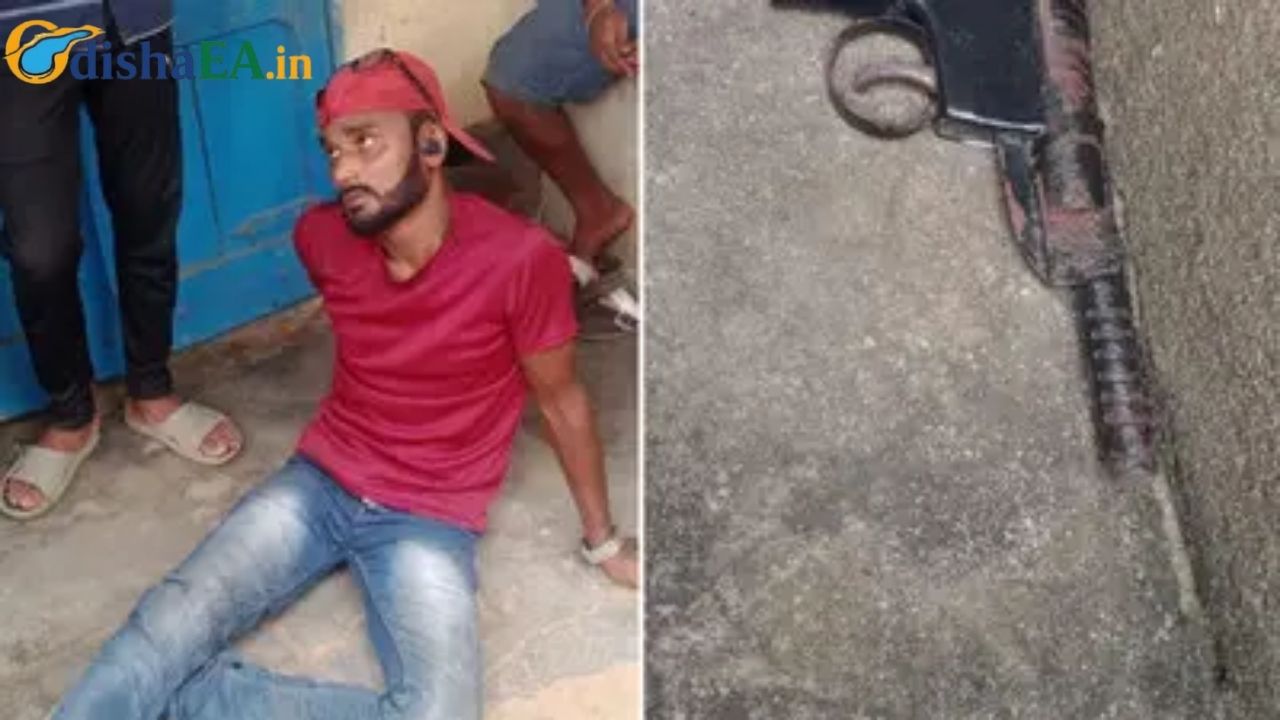When news broke that a Block Development Officer (BDO) in Odisha cleaned a clogged drain with her bare hands, people across India and even abroad were stunned. The officer, Karmi Oram, wasn’t just doing dirty work—she was sending a powerful message about public responsibility, dignity of labor, and leadership by example. The video of her action went viral, leaving both villagers and city folks speechless.

This isn’t your typical government story filled with boring jargon. Nope. This is about rolling up your sleeves (literally), getting messy, and proving a point that’s bigger than any office memo. It’s about civic duty, accountability, and respect for those who do the dirtiest jobs in our communities.
BDO Cleans Drain With Bare Hands in Odisha
| Point | Details |
|---|---|
| Who | BDO Karmi Oram, Sinapali block, Nuapada district, Odisha Odisha TV |
| What Happened | She cleaned a clogged drain with bare hands during a public grievance meeting |
| Message | Citizens must share responsibility for keeping public spaces clean |
| Context | Highlights unsafe drain cleaning practices still common in Odisha |
| Legal Gap | Manual Scavengers Rehabilitation Act (2013) excludes open drain cleaning Government of India Act PDF |
| Judicial Action | Orissa High Court orders end to unsafe drain cleaning in Cuttack |
The story of BDO Karmi Oram cleaning a drain with her bare hands is more than just a viral headline—it’s a wake-up call. It challenges citizens to own their civic spaces, pushes governments to ensure worker safety, and reminds all of us about dignity and leadership.
When officials lead by example, it sparks change. When citizens pitch in, it sustains that change. Together, they create cleaner, safer, and more dignified communities.
Why This Story Matters
In a world where government officials often get flak for red tape and “passing the buck,” this BDO’s actions cut through the noise. By getting her hands dirty—literally—she demonstrated:
- Leadership by example: Instead of lecturing, she did the work.
- Public accountability: Her message was clear: citizens need to step up.
- Highlighting sanitation struggles: The stunt revealed the dangerous and humiliating work sanitation workers still face.
For Americans, this might feel similar to when a mayor or governor shows up at a disaster site, not just for a photo-op, but actually hauling sandbags or clearing debris. It’s symbolic, it’s gutsy, and it sparks conversations.
The Bigger Picture: Drain Cleaning in Odisha
Let’s keep it real. Drains in many Indian towns aren’t just about rainwater—they often carry sewage, garbage, and everything else folks throw in. Cleaning them is hazardous, gross, and often deadly work.
Unsafe Practices Still Common
According to a 2025 New Indian Express report, sanitation workers in Bhubaneswar and Cuttack often clean drains with their bare hands, without gloves, boots, or protective gear. This exposes them to infections, injuries, and toxic waste.
The Legal Gap
The Manual Scavengers and Their Rehabilitation Act (2013) bans manual scavenging of dry latrines and sewers, but here’s the kicker: open drains aren’t covered. That means thousands of workers aren’t legally protected—even though the work is just as hazardous.
Judicial Push
The Orissa High Court stepped in, calling these practices “inhumane,” and directed the Cuttack Municipal Corporation to end manual cleaning and move toward mechanization. Deadlines were set, but enforcement is still shaky.
Lessons for Everyday Citizens
Here’s the real meat of Oram’s message: Don’t wait for the government to do it all. Think about how we handle trash, waterlogging, or even small civic duties in the U.S.—there’s a whole culture of neighborhood clean-ups, recycling drives, and community service.
Practical Advice: How You Can Help
- Stop littering – Every candy wrapper, every plastic cup tossed on the ground clogs drains.
- Organize clean-up drives – Just like “Adopt-a-Highway” in the U.S., community-led clean-ups make a difference.
- Use local complaint systems – Most districts now have apps or hotlines to report clogged drains. Use them.
- Educate kids early – Schools should teach civic hygiene, not just in textbooks but through practice.
- Demand mechanization – Advocate for safe equipment for sanitation workers.
A Step-by-Step Guide: Building Cleaner Communities
Step 1: Start Small
Begin with your street or block. Rally neighbors to clean once a month.
Step 2: Work With Local Officials
Just like Oram, many local officers want change. Collaborate instead of complaining.
Step 3: Create Awareness
Use WhatsApp groups, Facebook, or even town bulletin boards to spread the word.
Step 4: Fundraise for Gear
Gloves, boots, and masks for sanitation workers aren’t costly. Community funds can fill the gap.
Step 5: Stay Consistent
Don’t let it be a one-time thing. Build a tradition—like annual spring cleaning in the U.S.
The Human Side of the Story
It’s easy to scroll past a viral video. But picture this: sanitation workers—often from marginalized communities—spend hours every day knee-deep in sewage, all while society looks the other way. That’s what made Oram’s gesture so powerful: she broke that invisible line of “us versus them.”
Her act was a reminder of dignity. Every job matters. Every worker deserves respect. And leadership means walking the walk, not just talking the talk.
Balikuda Block Development Officer Accused of Misconduct by Local Leaders
Cuttack Issues Alert as Heavy Rainfall and Waterlogging Threaten City: Leaves Cancelled
Sundargarh MCH Surgical Team Hailed as Heroes After Life-Saving Operation
FAQs
1. Who is Karmi Oram?
She is the Block Development Officer of Sinapali in Nuapada district, Odisha, known for her hands-on leadership.
2. Why did she clean the drain with bare hands?
To set an example and remind citizens that civic cleanliness is everyone’s job, not just the government’s.
3. Isn’t this dangerous?
Yes. Direct contact with drain water can spread infections. Her act was symbolic, but sanitation workers face this daily without protection.
4. What does the law say about drain cleaning?
India’s Manual Scavengers Act (2013) bans certain practices but doesn’t cover open drains, leaving a legal loophole.
5. What can communities do?
Stop littering, organize clean-ups, and demand safety equipment and mechanization for sanitation workers.





